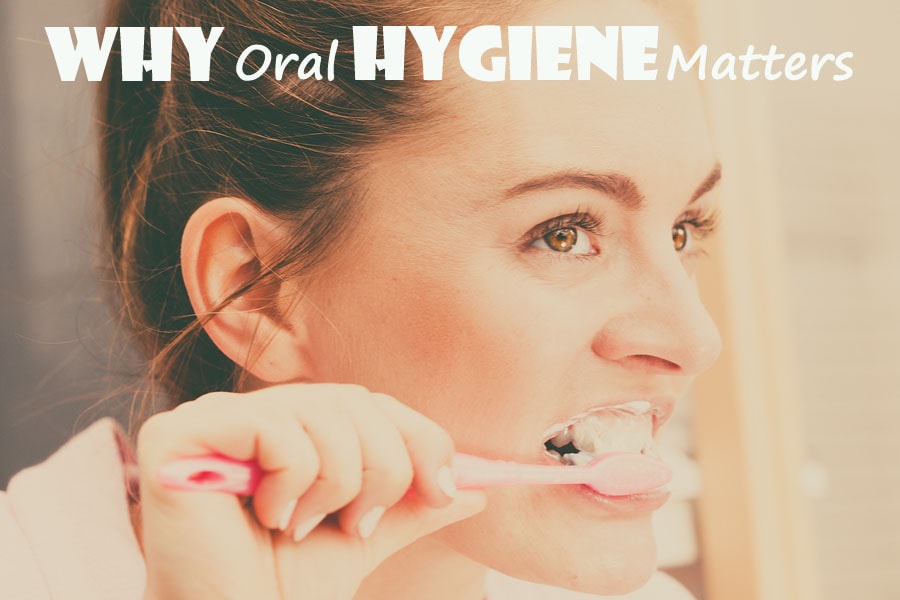Maintaining good oral hygiene means more than having white teeth and a bright smile. Although fresh breath and pearly whites is a good thing, proper oral hygiene actually helps with a person’s overall health. The mouth is the ultimate gateway to the rest of the body and poor oral health can lead a person down the path of destruction. It all starts with bacteria. Although bacteria are prevalent in much of the body, the mouth is crawling with it. Daily brushing and flossing can defend the body against these adversaries. Without proper hygiene, bacteria can elevate and cause oral issues such as tooth decay and gum disease. Let’s journey into the mouth and see why good oral hygiene matters.
Saliva helps to prevent infection by controlling bacteria and viruses within the mouth. Saliva contains antibodies that ward off viral pathogens including the common cold, flu and even HIV. It also contains enzymes which destroy bacteria as well as proteins known as histatins which hinder the growth of fungus. Although saliva is a wondrous entity, bacteria are constantly forming plaque on the teeth and under the gums. Without proper oral care, plaque can create an environment for bacteria accumulation which can result in a multitude of health issues.
Dry mouth, or a reduction in the production of saliva, is a common condition for many people. Most people do not realize that a consistently dry mouth can negatively impact the rest of the body. The body produces saliva to keep the mouth wet as well as protect the teeth from decay and the gums from disease. Although dry mouth can naturally occur with age, it is also caused by certain over-the-counter medications, dehydration and smoking. Talk to your doctor or dentist about medications or oral rinses which can help restore moisture and protect your mouth.
This can lead to root decay, gum disease, nutritional deficiency and illness. Periodontitis is severe gum disease consisting of tissue inflammation which causes gum tissue to recede from the tooth and expose the root. Since the root lacks protection, it becomes sensitive and prone to decay which might result in tooth loss. Meanwhile, the body might not receive the nourishment it needs to properly feed the immune system due to the discomfort of eating some foods. Therefore, the body becomes susceptible to further disease and illnesses.
This is caused by poor oral health has also been connected with the development of infections in other parts of the body. Rheumatoid arthritis is an autoimmune disease which causes an inflammation of the joints. Good oral hygiene, eating a balanced diet and regular dental visits can help keep your gums healthy and your joints flexible.
Did you know there is a verified link between gum disease and the development of cardiovascular issues? According to the American Academy of Periodontology, patients with periodontal disease are twice as likely to suffer from heart disease, strokes or blood vessel blockage. They are at risk because the extensive bacteria exposure from gum disease elevates the inflammation level throughout the entire body and targets the cardiovascular system.
A condition that has been tied to poor oral health and this is especially true in seniors. When you inhale through your mouth, tiny droplets of bacteria can pass from the mouth to the lungs and cause illness. Proper oral health care for seniors is vital as they are predisposed to illness and disease, it is imperative that they are vigilant about maintaining proper oral health.
Decayed teeth, bad breath caused by gingivitis and missing teeth can cause a person to feel less confident and have low self-esteem. Preserving your natural teeth is not only beneficial to your physical health, it is also beneficial to your mental health.
11/8/16 SP